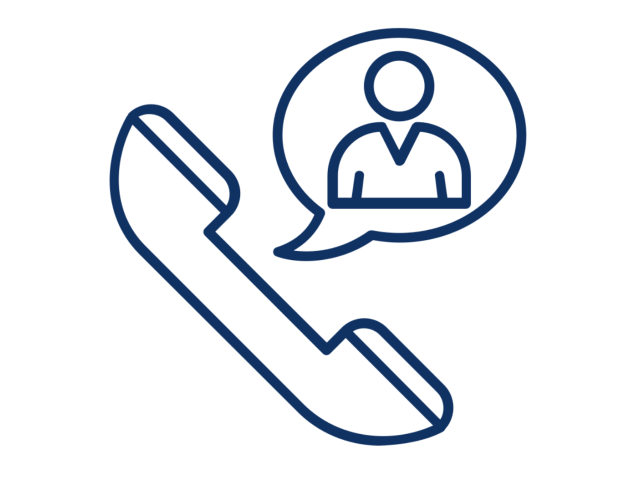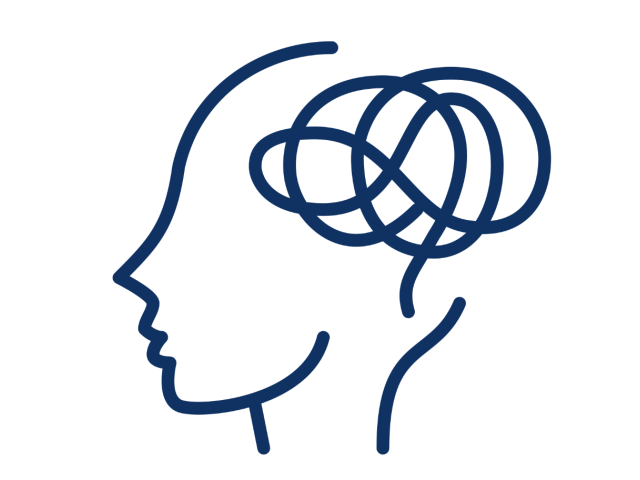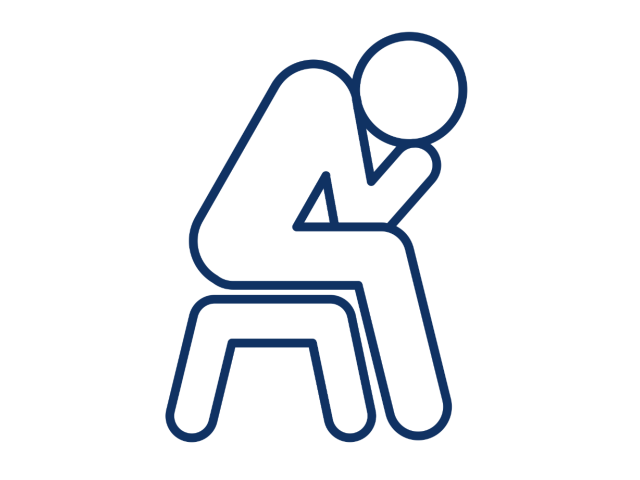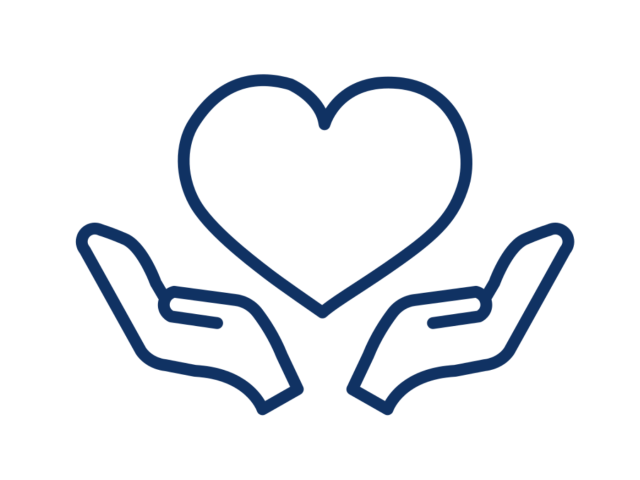Get Help
The Kean community is here to support students in distress. Don’t suffer in silence. If you’re experiencing a medical emergency, suicidal thoughts, or a mental health crisis, get help. There are safe, confidential resources available for you.

Suicide Hotlines
National Suicide and Crisis Lifeline: 988
New Jersey Hopeline: (855) 654-6735
Veterans Crisis 24-Hour Hotline: Call 988, then Press 1; or Text 838255
Uwill Teletherapy Services: (833) 646-1526
Crisis Resources for Students
At Kean University, we are committed to the well-being of our diverse community across Union, Ocean, Skylands, Wenzhou, and online campuses. In times of crisis, having access to immediate support and emergency resources is critical. Whether you are seeking urgent assistance or simply need someone to talk to, our campuses provide dedicated hotlines and contacts to ensure students, faculty, and staff have access to the help they need. Your safety and mental health are our priority, no matter where you are in the Kean community.
Make a KUBIT Referral Report
If you are concerned about a student’s well-being, safety, or behavior within the Kean University community, you can submit a report to the Kean University Behavioral Intervention Team (KUBIT). KUBIT provides support and intervention for students who may be experiencing distress, displaying disruptive behavior, or facing personal challenges. By completing a KUBIT report, you are helping to ensure that students receive the care and assistance they need. Reports are confidential and can be submitted online.
For more information or to file a report, please visit the KUBIT website. In case of an emergency call 911.
Mental Health Statistics
Mental health challenges such as anxiety, depression, and stress are increasingly common, particularly among college students and employees. National surveys show that about 1 in 5 adults experience mental health issues each year, with anxiety and depression being the most prevalent. College students and even employees often face unique stressors related to academic pressure, financial concerns, and social challenges that can intensify these conditions. Understanding these statistics is essential for raising awareness and creating a supportive environment where individuals feel empowered to seek help and manage their mental well-being.
What Innovative Ways Are Colleges Addressing Mental Health Challenges?
Mental Health Challenges?
At Kean University, we are committed to addressing mental health challenges through innovative programs and resources to connect with students across our Union, Ocean, and online campuses.
We implement proactive strategies, such as peer support networks, wellness workshops, and teletherapy options, to foster a supportive environment for all students. Our approach emphasizes accessibility, education, and community engagement, ensuring that every student can find the help they need. Explore our resources and join us in creating a healthier campus community. Learn more about:
Kean Wellness for In-Person Therapy
Kean University offers in-person and virtual therapy services through the Counseling Center to support students' mental and emotional well-being. These confidential sessions with licensed professionals provide a safe space to discuss personal challenges, stress, anxiety, and more.
UWILL
Kean University partners with UWILL, a free, online therapy platform, offering students the flexibility of virtual counseling. UWILL provides accessible mental health support with licensed professionals from anywhere, ensuring students receive care that fits their schedule.
Cougar Climb – Health and Wellness Badge
The Cougar Climb – Health and Wellness Badge encourages students to engage in activities that promote mental and physical well-being. By completing wellness-related tasks, students can earn badges while building a healthier lifestyle and enhancing personal growth.
Well-Being at Work
Kean’s Well-Being at Work initiative focuses on promoting mental health and wellness for faculty and staff. Through workshops, resources, and wellness programs, the initiative aims to foster a supportive, healthy work environment.
Kean University Behavior Intervention Team (KUBIT)
KUBIT is a multidisciplinary team that provides caring support and collaboration through evidence-based risk assessment and interventions for any member of the Kean University community who may be exhibiting disruptive, distressed, changed, at-risk, and/or concerning behaviors. KUBIT meets regularly to review referrals received, gather information, assess risk, and intervene appropriately to support student well-being and campus safety.
What to Do if You Notice These Signs
If you recognize signs of mental health decline or suicide risk, it is important to act with care and urgency. Always show empathy as signs of struggle may not be obvious, listen without judgment. Encourage students and employees to create a culture where professional help is destigmatized, whether from a counselor, therapist, or a crisis helpline.
If you believe they are in immediate danger, do not leave them alone, contact emergency services or a crisis hotline right away. Your support could make a life-saving difference.
What to Do to Help:
- Talk: Let them know you are concerned and willing to listen.
- Build a Culture of Belonging: Destigmatize professional support, such as a counselor, therapist, or a helpline.
- Self-Care Tips: Remember to regularly practice and promote coping strategies, mindfulness exercises, and stress relief.
- Peer Support: Join and attend events hosted by student organizations, peer groups, and our local community.
- In an emergency: If they are in immediate danger, do not leave them alone. Call a local emergency number 911 or a crisis hotline 988.
Immediate Resources for Assistance:
- Emergency Services: 911 (U.S.)
- National Suicide Prevention Lifeline (U.S.): 988
- Crisis Text Line: Text HOME to 741741 (U.S.)
Events/Workshops
Kean University is committed to fostering the mental health and well-being of our students, faculty, and staff. We offer a range of upcoming awareness campaigns and workshops focused on mental health, stress management, and self-care strategies. These events provide valuable resources, guidance, and peer support. To learn more and stay updated on upcoming events, please visit Cougar Link.
Frequently Asked Questions (FAQ)
Questions about mental health and suicide prevention are common, and it’s important to have clear answers. Below is a list of frequently asked questions to help you better understand mental health challenges and the support available:
- What is mental health?
Mental health refers to emotional, psychological, and social well-being, affecting how we think, feel, and act. At Kean, mental health is vital for academic success and personal growth.
- How do I know if I need help?
If you experience persistent sadness, anxiety, or changes in behavior that affect daily life, it may be time to seek help. Reach out to campus counseling services for support.
- What are common signs of mental health issues?
Signs include changes in mood, social withdrawal, difficulty concentrating, sleep disturbances, and changes in appetite. If you notice these in yourself or peers, consider speaking with a counselor.
- How can I support a friend in crisis?
Listen without judgment, encourage them to seek professional help, and offer to accompany them to counseling services. Kean has resources available to support students in crisis.
- What resources are available on campus for mental health?
Kean offers virtual and in person counseling services, workshops, and peer support groups. Visit the Counseling Center for confidential support and resources tailored to student needs.
- What should I expect from counseling?
Counseling at Kean involves confidential sessions with trained professionals who will listen to your concerns and work with you to develop coping strategies and solutions.
- How do I manage stress and anxiety?
Utilize self-care techniques like mindfulness, exercise, and time management. Kean provides workshops and resources to help students develop effective stress management strategies.
8. Are mental health issues common among college students?
Yes, mental health issues are prevalent among college students, with many experiencing stress, anxiety, and depression. Kean is committed to addressing these challenges through various support services.
9. What is the difference between a psychologist and a psychiatrist?
Psychologists provide therapy and counseling, focusing on behavior and emotional health, while psychiatrists are medical doctors who can prescribe medication for mental health conditions.
- How can I promote my own mental well-being?
Engage in regular physical activity, maintain a balanced diet, get adequate sleep, connect with friends, and seek help when needed. Kean offers various programs to support your well-being.
Contact – Who to reach out to for more information or help.
For more information or to seek help regarding mental health resources at Kean University, please reach out to the following:
- National Suicide Hotline: 24/7 Hotline assistance dial 988.
- Kean University Counseling Center: Professional mental health support for students.
- Office of Accessibility Services: Resources for students requiring accommodation or support for mental health-related needs.
- Cougar Connections Center for Social Work: Assistance with social services and mental well-being.
- Kean University Police and Public Safety: Emergency 911 and non-emergency assistance 908 737 4800.
Citations
American Foundation for Suicide Prevention. (n.d.). Risk Factors and Warning Signs. Retrieved from https://afsp.org/risk-factors-and-warning-signs
Abelson, S., et al. (2022). Mental health in college populations: A multidisciplinary review of what works, evidence gaps, and paths forward. Higher Education: Handbook of Theory and Research.
Before heading to college, make a mental health checklist. Caron, C. (2022). The New York Times. Retrieved from https://www.nytimes.com/2022/07/08/well/mind/mental-health-college-students.html
Ezarik, M. (2022). Overwhelmed: The real campus mental-health crisis and new models for well-being. The Chronicle of Higher Education. Retrieved from https://store.chronicle.com/products/overwhelmed
Mayo Clinic. (2022). Suicide and Suicidal Thoughts: Symptoms & Causes. Retrieved from https://www.mayoclinic.org/diseases-conditions/suicide/symptoms-causes/syc-20378048
National Institute of Mental Health. (2021). Warning Signs of Suicide. Retrieved from https://www.nimh.nih.gov/health/topics/suicide-prevention
Substance Abuse and Mental Health Services Administration (SAMHSA). (n.d.). Behavioral Health Treatment Services Locator. Retrieved from https://www.samhsa.gov/find-help/national-helpline
Student mental health status report: Struggles, stressors, supports. Retrieved from https://link.springer.com/referenceworkentry/10.1007/978-3-030-76660-3_6?noAccess=true



